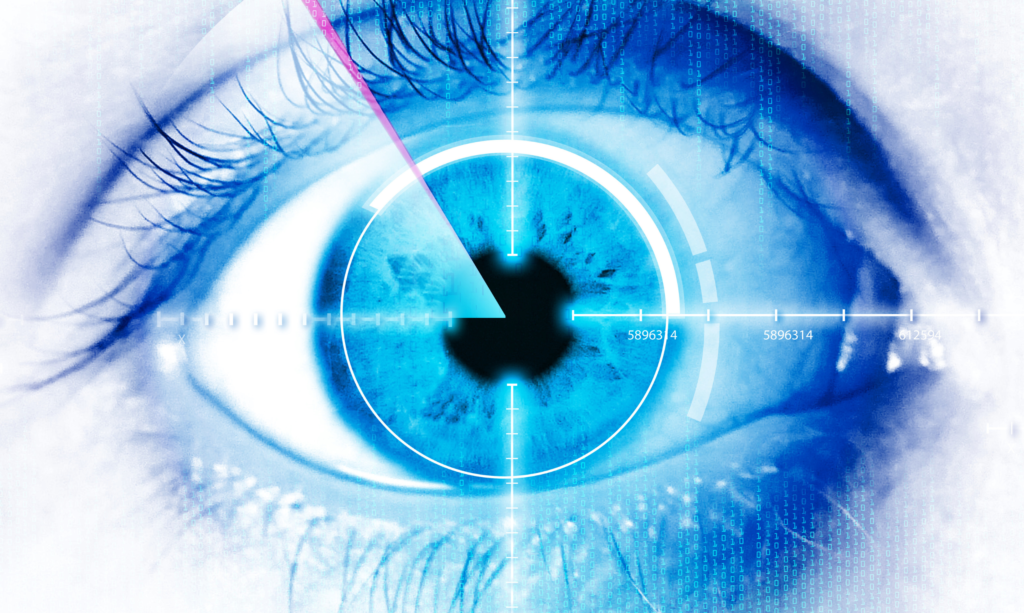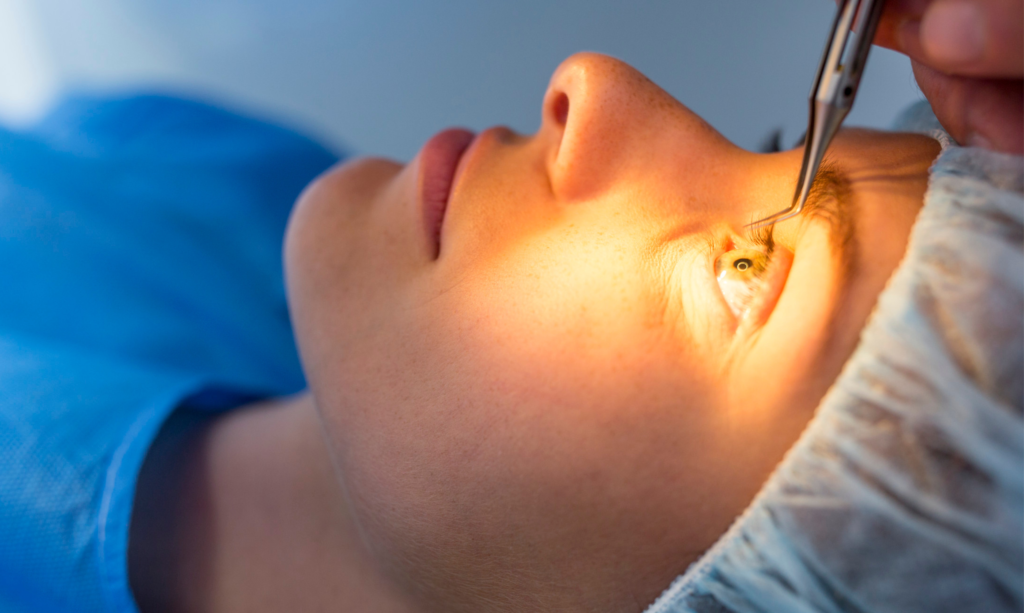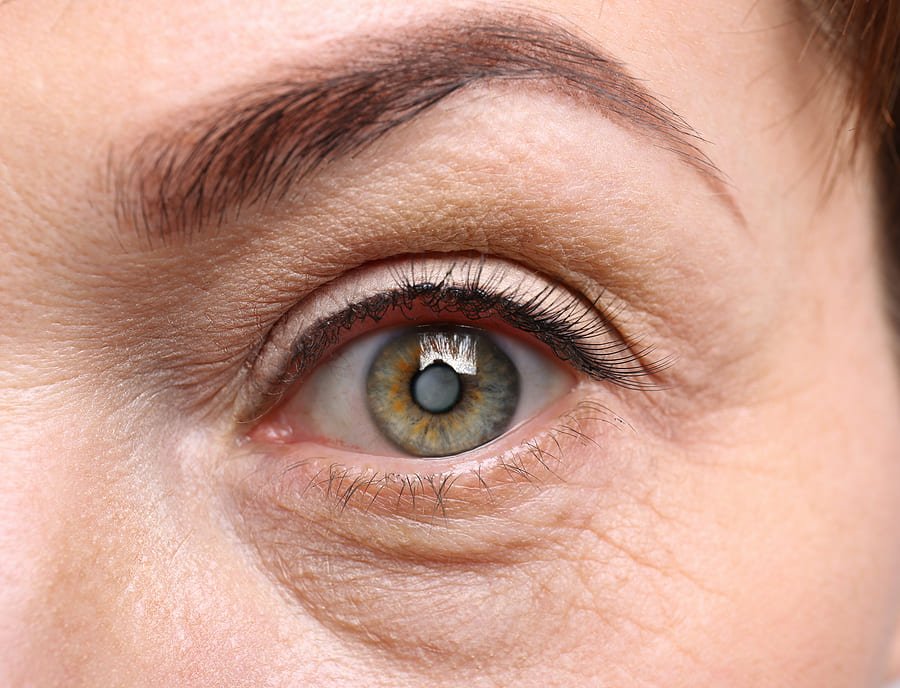
Refractive Surgery in Dhule
Shri Ramchandra Netralaya in Dhule offers advanced refractive surgery, including LASIK and PRK, to correct vision issues, providing patients with clearer vision and reduced dependence on glasses.
- Comprehensive Eye Care Services
- Experienced Eye Care Specialists
- Utilizing Cutting-Edge Technology
What is refraction?
Refraction in the eye refers to the bending of light as it passes through different structures, primarily the cornea and lens, to focus on the retina. This process is essential for clear vision. If light doesn’t focus correctly on the retina, it can lead to refractive errors like nearsightedness, farsightedness, or astigmatism, which often require corrective lenses or surgery.
What is refractive surgery?
Refractive surgery is a surgical procedure aimed at correcting common refractive errors like nearsightedness, farsightedness, and astigmatism. It reshapes the cornea or implants corrective lenses to help light focus properly on the retina, reducing or eliminating the need for glasses or contact lenses. Popular types of refractive surgery include LASIK, PRK, and LASEK, each tailored to address specific vision problems.
Signs of Refraction
-
Seeing double images, especially when tired
-
Strain from focusing can cause headaches
-
Poor vision in low-light conditions
-
Squinting to see more clearly
-
A need for new glasses or contact lenses regularly
-
Difficulty focusing on close tasks
-
Objects seem blurry at distances
-
Eye fatigue from overuse


Book Your Appointment at Shri Ramchandra Netralaya for Exceptional Eye Care
What causes refraction?
-
Extensive screen use or reading in poor light
-
Most common cause is aging
-
Misaligned lens causes vision issues
-
Inherited or developmental problems
-
Trauma to the eye

How is refractive surgery performed?
Refractive surgery is designed to correct common vision issues and reduce dependence on glasses or contact lenses. Through precise modifications to the cornea, refraction is altered, enabling light to focus properly on the retina. Various techniques like LASIK, PRK, and SMILE reshape the cornea to adjust its refraction capabilities. These procedures use a laser to sculpt the corneal surface, effectively changing its refractive properties. The goal is to optimize refraction so that visual clarity is enhanced, addressing refraction issues such as nearsightedness, farsightedness, and astigmatism. Regular assessments post-surgery ensure that refraction is maintained at the desired level.
Instructions for eye patients after surgery:
- Do not rub the operated eye.
- While bathing, pour water below the neck for four weeks, not on the head.
- Do not allow water to enter the eyes; wipe the face clean with a wet cloth.
- Do not sleep on the side of the operated eye for at least two weeks.
- Wear dark glasses for a month to avoid strong light and dust.
- With a clean soft cloth or handkerchief, gently dab the water coming from the eye only after it reaches the cheek, do not put pressure on the eye.
- If the eye becomes very painful or red, see a doctor immediately.
- Do not lift heavy objects or cough strenuously.
- Keep small children away to avoid accidental contact or injury while they play.
- Twice a day, soak cotton in hot water, squeeze it, and then clean the eyes from outside.
- Take your usual tablets for high blood pressure, diabetes, asthma, heart disease, and other conditions as prescribed.
- Take a light diet for 2 days after operation, and avoid solid foods that are hard to chew.
- Patients can walk in the open environment but should avoid crowded places.
- Hands should be washed and wiped before instilling eye drops. Drops should be applied by gently pulling the lower eyelid.
- Apply the eye drops as directed and keep the eye closed for five minutes.
- Do not use a pin/ needle to open a new drop. It should be opened as directed, leaving a gap of 15 to 20 minutes between two drops.
- Avoid watching TV, reading, computer, and cooking for at least 8 days.
- Follow up as advised by the consultant.
- The glasses will be prescribed after a month.
- If the blood thinning pill is stopped before the operation, start it from the second day after the operation.
Before & After Result




Book Your Appointment Now!
Opening Hours
- Monday - 9:00 am - 9:00 pm
- Tuesday - 9:00 am - 9:00 pm
- Wednesday - 9:00 am - 9:00 pm
- Thursday - 9:00 am - 9:00 pm
- Friday - 9:00 am - 9:00 pm
- Saturday - 9:00 am - 9:00 pm
- Sunday - 9:00 am - 12:00 pm
